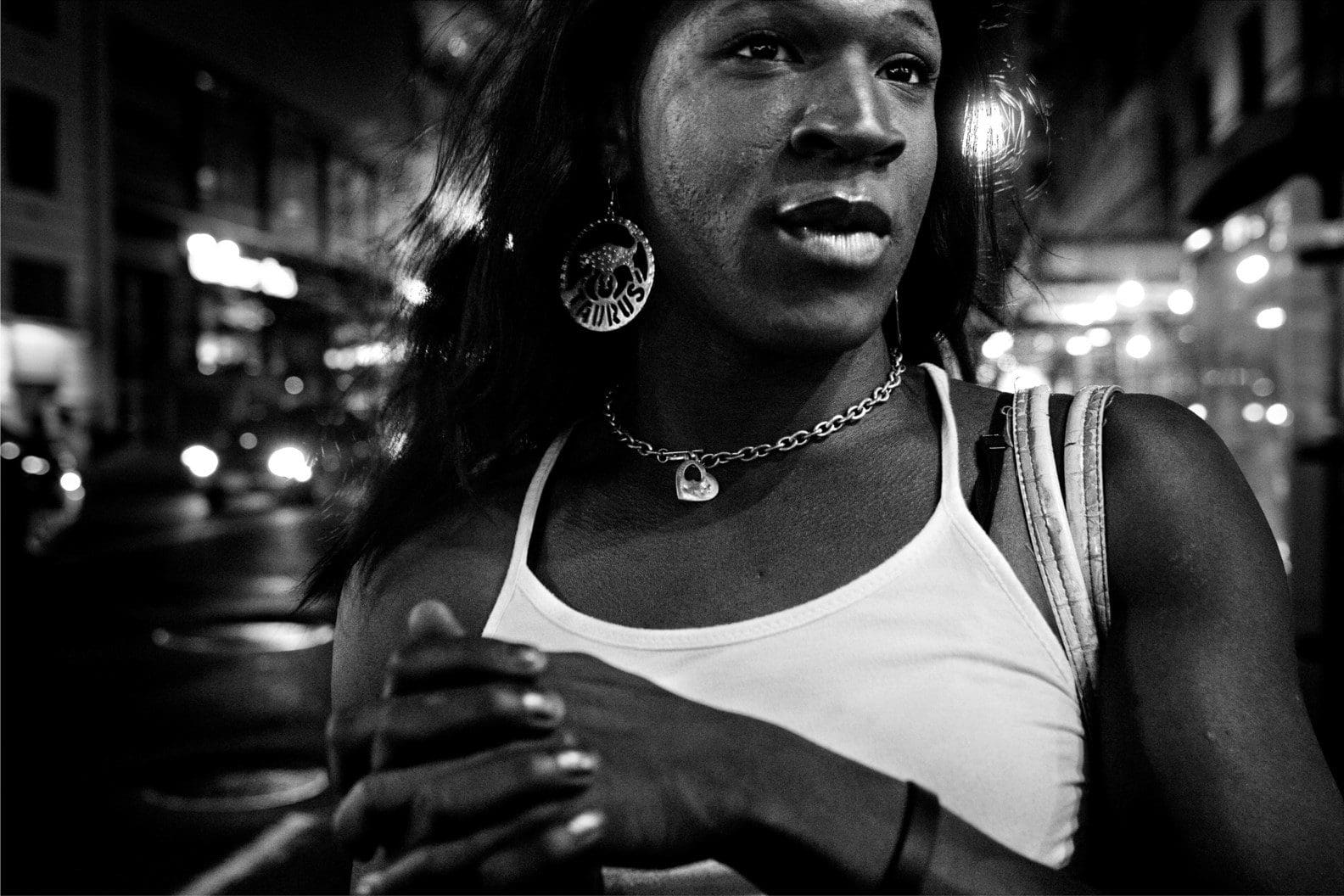
Trans rights are under attack. With a proliferation of anti-trans legislation this year, from denying gender-affirming care to prohibiting educators from even discussing gender identity in schools, the cultural backlash feels swift and sudden. However, America actually has a long history of anti-transness—it’s just missing from the mainstream narrative of the gay rights movement. Enter The Stroll, a new documentary that premieres tonight on HBO.
The title refers to the west side of 14th street in New York City’s Meatpacking District where, from roughly the ’70s to the early ’00s, trans women (mostly women of color) engaged in sex work to survive. One of those women is Kristen Lovell, who co-directs here with Zackary Drucker. Guided by Lovell’s personal experience, the film uses interviews with fellow sex workers, archival footage and even animation to illuminate a sprawling history of transness in New York City.
Arguably the film’s strongest tools are the firsthand interviews Lovell conducts with former colleagues. There’s Lady P, who describes the way she would sometimes break into the meat trucks sitting at loading docks overnight to “do what mother does best” with her clients. There’s Carey, who suddenly grows self-conscious as she describes what her clients would typically ask for only for Lovell to laugh with her and joke that it’s called “pegging” now. In these and pretty much every interview, because Lovell knows these women personally, there’s a real frankness and intimacy to each conversation. She shares a shorthand and comfort with her subjects that another filmmaker would have to earn.
That said, while those interviews give the film an insider perspective, Lovell constantly ties the world of The Stroll to a larger historical narrative. Take the moment when Lovell drops the extraordinary fact that she met trans icon and trailblazer of the gay rights movement, Sylvia Rivera, in the summer of 2000. That meeting becomes a jumping off point to talk about the way that, despite being a leader of the movement in New York City post-Stonewall, Rivera and trans issues were pushed to the fringes in order to make the fight for gay rights more palatable to straight culture. Using archival footage, Lovell juxtaposes Rivera being booed at a Pride march in 1973 with footage of Rivera living in a shantytown on the West Side Highway decades later. It’s a striking passage, but it’s made even sharper by the footage shown a few moments later, when Lovell and some of the former Stroll workers marvel that Little Island, one of NYC’s newest (and largely privately-funded) public parks, sits where Rivera’s encampment once stood.
Indeed, perhaps the film’s most impressive feat of history is tying what happened to The Stroll to the larger history of New York City’s gentrification. While sections that trace the way 9/11 forever changed sex work in the city or devastatingly critique the cops and politicians who criminalized trans women’s very existence are brilliant, perhaps the most infuriating involves interviews with Harry, a “neighborhood activist” who lived near The Stroll. As Harry proudly describes the way he and fellow members of Villagers Against Crime would take down license plates and then use the DMV to track down the owners, threatening to out them to their families and employers, it’s impossible not to be horrified. And while it’s frankly shocking Lovell got an interview with someone like Harry, it also reflects just how many perspectives she and Drucker manage to fold into their film.
However, while The Stroll is impressive for just how much ground it covers, because its focus is so wide, there are times when it leaves the viewer wishing for more information. Take the section where former Stroll regular Tabytha talks about her time in prison, not in the “alternative lifestyle housing” at Rikers Island, which separated trans and queer inmates from the general population, but in the much harsher conditions of a prison upstate. Faced with racism and constant threats to her safety because of her transness, Tabytha says she turned to violence to protect herself. As she puts it, “I turned into a monster.”
Though we see an animated sequence of a disembodied hand using a razor and a toothbrush to create a weapon and Tabytha explains that her 5-7 year sentence turned into 14 as a result of what she did, both she and the film are vague on what she and women like her experience while incarcerated. Admittedly, perhaps the film doesn’t need that. There are many accounts both real and fictional describing the horrors of prison for trans women, but for a film both so willing to go into the messy, true details of its subjects’ lives and offer harsh critiques, this feels like the filmmakers pulling their punches.
Still, it’s hard to argue with Lovell and Drucker giving Tabytha this bit of grace. At its core, The Stroll is about giving dignity back to a group of people who’ve had their personhood systematically denied for decades. Perhaps we as an audience should consider that we simply are not entitled to know every horror these people have experienced in order to sympathize with them. Seeing Izz burst into tears while standing on The Stroll in the present day, lamenting “the things we had to do,” it should be enough to know that the trauma exists and that it’s our responsibility to make sure future generations aren’t forced into the same impossible decisions.

